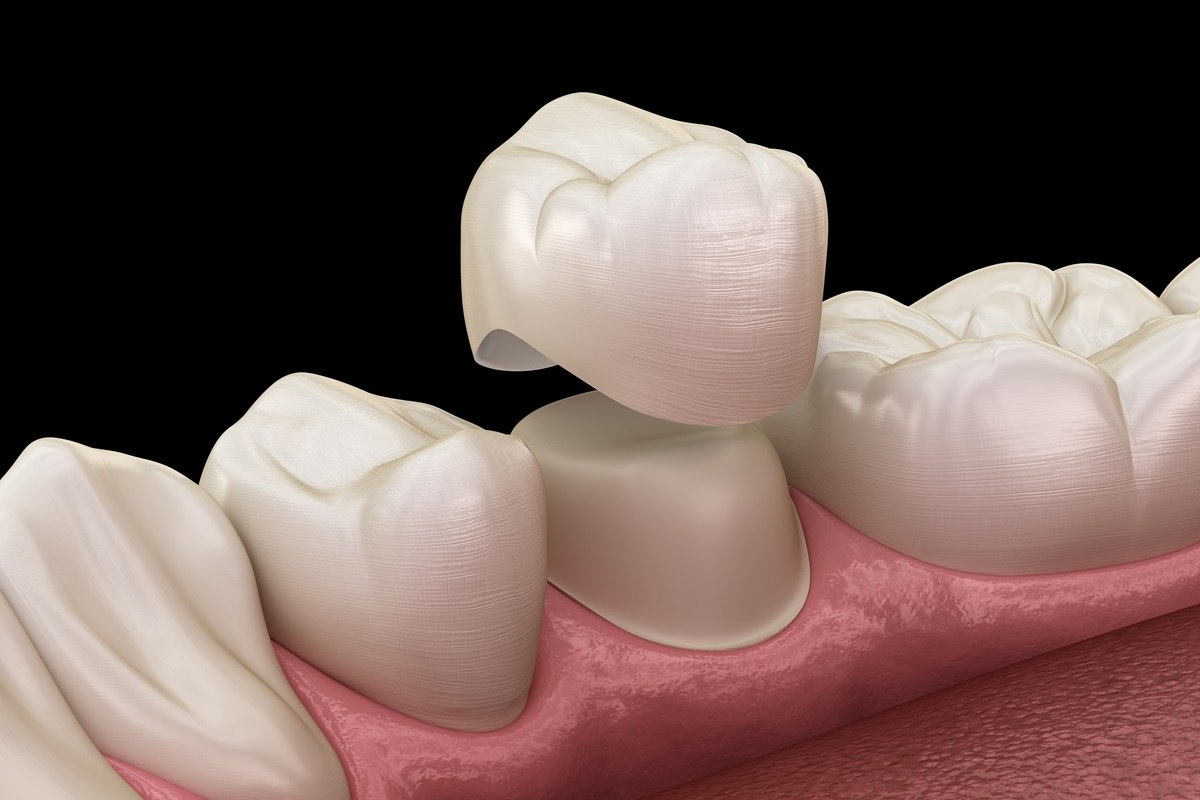A dental crown is a tool designed to restore a decayed, malformed, or otherwise missing tooth by fusing a tooth-shaped cap onto the area of your smile that needs to be restored. It can be made to appear virtually indistinguishable from your original tooth and therefore won’t be noticeable after the treatment.
This prosthetic can be fabricated from porcelain, porcelain-fused-to-metal (PFM), and metal alloys. A patient’s preferences and the extent of the damage done will help their dentist decide which type of material should be used. If you prefer your crown to blend in, porcelain is the best choice.
When Do You Need a Dental Crown?
You may need to acquire dental crowns near you if your tooth is beyond repair and traditional fillings or even inlays and onlays will not effectively address the issue. After all, your teeth should come together as a cohesive unit and in order to function properly, they all need to be taken care of. Problems such as decay, malformed teeth, or severely stained teeth can all be solved by getting dental crowns near you.
The treatment itself is simple and painless, and will restore your teeth back to their former glory. With that said, a dentist will need to assess your smile before you can undergo any official form of care.
The Dental Crown Process
This process frequently demands at least two appointments to complete. If you deal with major tooth sensitivity or anxiety, talk to your team about using a local anesthetic, as this can help you remain comfortable.
Your first appointment includes x-rays and preparation. After the initial diagnostic measures, your dentist will make your tooth suitable for crown fitting by filing it down and taking molds. You will be fitted with a temporary crown to preserve your tooth while the real crown gets prepared.
The dentist will then send your x-rays and molds to a lab where the crown is produced, which takes around 2-3 weeks. You’ll be notified when the prosthetic is ready and you can return to have it permanently used.
You might experience some discomfort when the crown is first placed, but this all should subside in a few days. In rare cases, if your bite still feels off after a period of time, your dentist will be more than happy to help with changes to your crown. Luckily, this entire recovery period is short and should not inconvenience you for more than a few days.
Aftercare is simple and should not be any different from your regular dental hygiene routine. There is still a real tooth underneath the crown and should be treated accordingly. Anything that can chip a real tooth can also chip a crown and it is advised to not bite down on hard surfaces.
Caring for Your Crown
To ensure that your prosthetic lasts as it’s meant to, here are some easy but effective tips to follow:
- Maintain good dental hygiene every day. This includes brushing, flossing, and using mouthwash.
- Be mindful of what you’re eating. Hard foods may fracture your crown.
- Wear a mouthguard if you play sports or deal with bruxism.
- Adhere to your biannual check-ups and cleanings with your dentist.
- If any issues arise, let your dentist know immediately.
If you have any concerns or inquiries, don’t hesitate to make your dental team aware so they can help as soon as possible.
Ready to Restore Your Smile? Call Us!
The modern dental treatments that we provide can solve whatever problems you may have with your teeth.
Our dentist in Airdrie can provide you with a full diagnosis and treatment if you’re looking to acquire dental crowns, or explore another means of restorative therapy. Book an appointment on our website or by phoning Airdrie Choice Dental today! We look forward to speaking with you!

